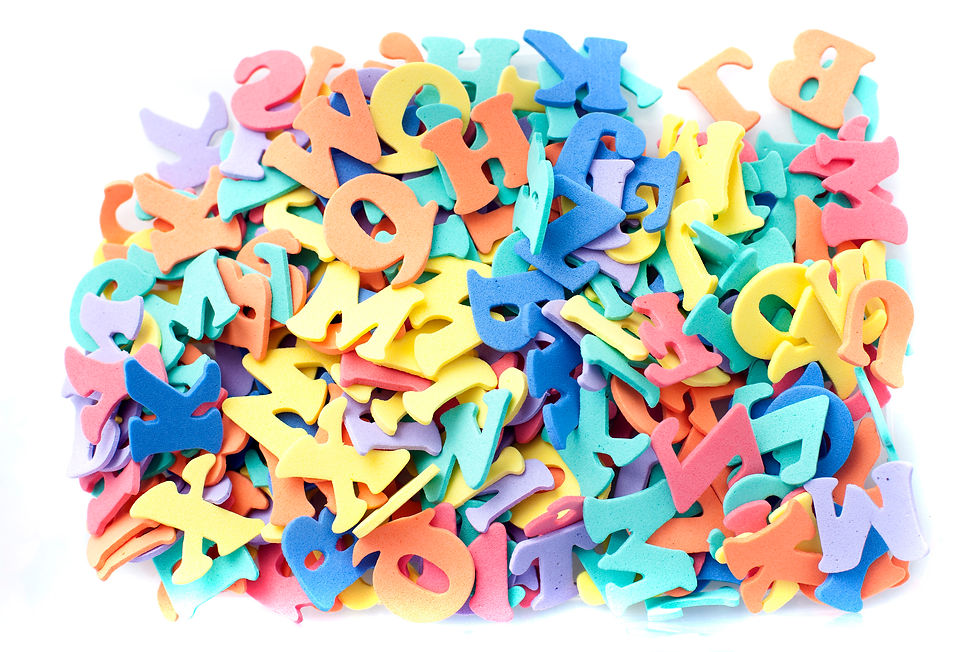What's the Prescription for a Perfect Name?
With Viagra and Prozac rivaling McDonald's and Coca-Cola among today's most frequently used brand names, it's no surprise that pharmaceutical manufacturers are taking the whole issue of product branding very seriously.

Gone are the days when consumers were happy to trust their pharmacist's advice when it came to cough mixture or heartburn remedy. Now, they frequently know exactly what they want and are even sufficiently well informed to ask their GPs to prescribe certain brands by name.
A decade ago it would have been unthinkable that the name of a treatment for erectile dysfunction would become commonplace in our daily language. Add to that the appearance of Brazilian football legend Pele in advertisements urging sufferers to seek help and it's plain to see there have been some dramatic changes in the whole area of pharmaceutical branding and marketing. Every day we are bombarded by hundreds of brand names, yet our brains have the capacity to retain only a fraction. We make decisions based on subconsciously absorbed information, and names that stick provide a stimulus that triggers recognition and encourages us to buy.
Loyalty
Not only do names provide a stimulus, they can also create a sense of familiarity and trust, thus encouraging brand loyalty - the ultimate aim of all manufacturers. If a customer is prepared to remain loyal, a product's future is secure unless there are any changes. When Kellogg's decided to alter the name of Coco Pops to Coco Krispies in the UK to harmonize worldwide branding, the company was inundated with complaints and was forced to do a U-turn. It may have been a relatively subtle change, but consumers were not prepared to accept it and the company had no choice but to listen - or risk jeopardizing the future of the brand in the UK.
Other name changes designed to rationalize worldwide branding have also met with disapproval, highlighting the importance of careful initial planning and foresight. A name chosen with little thought to future markets can prove an expensive mistake. Manufacturers of high-profile consumer products have long been aware that the name is a key deciding factor at point of sale. But this is a fairly new concept in the drug market, particularly in the field of prescription-only medicines. Generic names - the official medical name for the active ingredients - have traditionally been used with little thought towards the consumer. Advertising of prescription-only drugs is prohibited in Europe and drug companies considered it sufficient to simply highlight the ingredients for the benefit of the prescriber. Today, however, patient power cannot be ignored and brand names must resonate far beyond the medical community. Patients are more concerned with the efficacy of a medicine than its ingredients, and names need to create positive associations that reflect the benefit of the treatment.
Market share
Stealing a share of the market in over-the-counter (OTC) pharmaceuticals is a difficult task, as many consumers rely on tried and tested favourite brands. This is where the expertise of creative teams in formulating a name to challenge established brands is really tested. Once the preserve of in-house marketing departments, name creation is now a business in its own right.
Worldwide distribution of products makes careful naming vital, and this is all the more important in the pharmaceutical industry where any confusion regarding similar names must be avoided. To help, there are specialist naming agencies that have the resources to check linguistic and cultural suitability within the target markets; additionally, possible future expansion into other countries must also be taken into account.
Brand name choices can sometimes have far-reaching consequences that are almost impossible to predict. American pharmaceutical company Eli Lilly is currently launching its anti-impotence drug Cialis in the UK to compete with Pfizer's Viagra. The name was inspired by the French word for sky (ciel) and is intended to create the impression that the sky's the limit. But for members of the Cialis family in the UK, the name really is the limit. Not only do they fear personal ridicule, but also possible damage to family businesses bearing the same name. One such business is a public relations company that has been trading under the Cialis name for the past 30 years. Its owners believe customers, and in particular drug company clients, will no longer want Cialis on news releases for obvious reasons.
Names
Names that are too similar can also cause problems, even with medical professionals. At least five women who were mistakenly injected with the antirheumatism drug Depo-Medrone (Upjohn Ltd) instead of receiving three months of contraceptive protection from Depo-Provera (Pharmacia) have sued their GPs for negligence after unexpectedly falling pregnant. The confusion arose because the products not only had similar names, but also similar packaging. So how do new drug names find their way into the market place, and what restrictions are placed on their manufacturers?
When a drug company discovers a new generic drug, it is put through a series of clinical trials to gain approval for UK marketing from the Medicines Control Agency (MCA), the government body responsible for ensuring all medicines that reach the UK market meet stringent standards of safety, quality and efficacy. The MCA approves the drug and issues a license to market the generic product under a brand name. The company then has a patent to exclusively market the medicine for a set period, usually 10–12 years, allowing it to recoup the research and development costs before other drug manufacturers are permitted to produce the drug. In Europe, the European Agency for the Evaluation of Medical Products (EMEA) performs a role in approving pharmaceutical brand names for use. The US Food and Drug Administration (FDA) serves a similar function in the US.
Once this patent expires, other pharmaceutical companies are free to market the generic drug, provided they use either the generic name or an alternative brand name. This gives the company responsible for developing the drug a huge advantage compared with its competitors to capture its market and secure customer loyalty during a long period. A well-chosen brand name is, therefore, crucial. Viagra, or sildenafil to give its generic name, is a perfect example. Currently under patent to Pfizer, this drug has already become a household name and is likely to lead the market long after its patent has expired. Carefully planned naming, marketing and promotion on a global scale - and considerable financial investment - have served to secure the future of the brand, which is every manufacturer's ultimate aim.
The name is just one area of marketing, but its importance should not be underestimated. Viagra sounds strong, forceful and positive - quite the opposite of the condition it is treating - and this is an interesting concept. Patients do not wish to be reminded of their ailments, but rather encouraged and comforted by the promised benefits of the treatment. Names that create positive associations are more likely to be accepted and embraced than those that simply echo the name of the drug's ingredients. Bayer and GlaxoSmithKline (GSK) are also developing an anti-impotence drug to be launched in Britain this year. Levitra is an equally positive, empowering name, but with a cheeky hint towards its intended benefit, which could prove a useful marketing tool.
Approaches
Triangle Pharmaceuticals and Trimeris took a more serious approach to naming their AIDS drugs. Triangle wanted a name that reflected the science involved and came up with Coviracil, the "co" reflecting the fact that it will be taken in conjunction with other drugs and the "vir" representing the AIDS virus. The mixture of drugs taken by AIDS patients is often referred to as a cocktail and the naming team did initially consider going down this route, but decided against this. Trimeris, which has developed a fusion inhibitor that blocks the AIDS virus from fusing with healthy cells, opted for Fuzeon, a name that reflects the drugs method of action. Other names that were considered included "Diverx," "Emrane" and "Jepfor."
So how do specialist agencies come up with the perfect name? It's not just a case of plucking a name from thin air. Brand name development takes a great deal of time and skill, but the end result is a name that will stand the test of time and prove a priceless asset. Companies frequently make the mistake of under-investing in this area of product development, often with disastrous and far-reaching consequences. Trademark registers have become increasingly cluttered, and fewer and fewer names are available, particularly in pharmaceutical classes. This calls on creative teams to be even more inventive and use all the resources available to them.
The long road to finding the perfect name is littered with pitfalls, and a typical naming and trademarking process can take up to two years. Once a shortlist of names has been chosen, there are linguistic, legal and regulatory hurdles to overcome before registering the final choice as a trademark. The name development process is divided into four stages and follows the same pattern whether the product is a medicine or a motorbike.
First, a naming template is drawn up - a blueprint from which the creative team can base its ideas. This involves in-depth interviews with clients to understand their business in detail and time spent developing a feel for the new product within their environment. The template provides a detailed description of the product, often with samples if appropriate, and addresses the semantics, morphology, personality and function of the name to be formulated. These terms refer to the associations the name will evoke - its length, form and structure, and how it will be positioned and used within its specific market.
Name creation is the next stage and a variety of resources is used, including specialist software packages that manipulate letters into easily pronounced, legally robust formats. Many pharmaceutical names with unusual letter combinations and no literal meaning are developed in this way. The skill of the naming specialist is to take a creative stimulus and turn it into a successful brand name.
Selection comes next, with as many as 5000 names being reduced to just a handful by means of client feedback, legal checks and linguistic verification. This is particularly important for medicines, where similarities to other product names must be avoided at all costs.
The final stage of the process involves market research and full legal registration. Market research provides the only real indicator of reactions to a new name within the target market. Consumer tests will generally be performed on three to five names before a final choice is made. Only then can full legal registration occur to ensure exclusivity for the client. The pharmaceuticals industry is an ever-changing market in which product identity has become a prominent issue in recent years. Nothing is more important to the identity of a product than its name, and the emergence of brands such as Viagra and Prozac serve to prove the point. The name acts as the focus for the brand, the one enduring constant in its lifespan. Choosing the right one can be a goldmine.





















